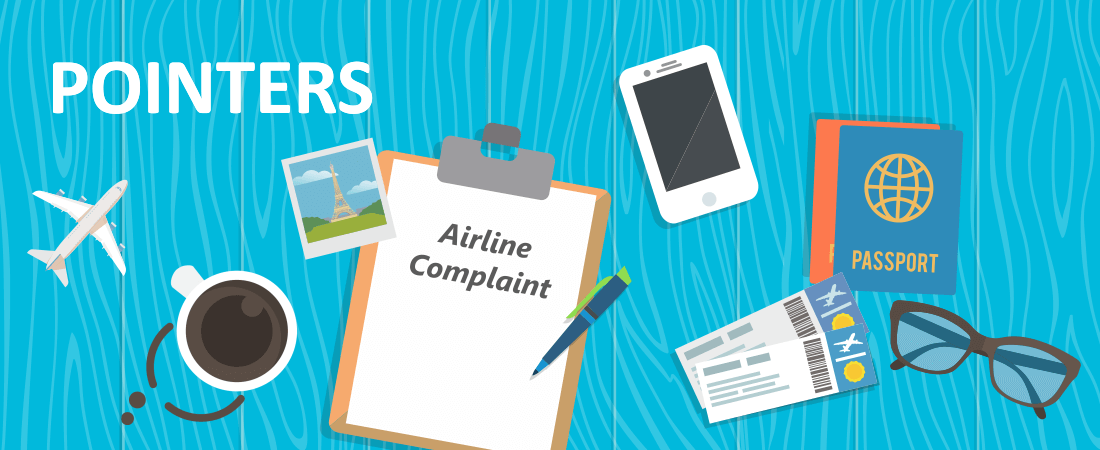
Travel can be grueling, and when things go wrong, a domino effect can lead to missed connections or even forced overnights in some places. Add to that surly airport employees or crew members and lost luggage, and you can have quite the unique experience. If you save your complaints for cocktail parties or the hotel bar, you might be missing out on much-deserved compensation.
Airlines want to make things right within reason. Take, for example, the recent power outage that Delta experienced causing it to delay or cancel hundreds of flights over the course of several days. The airline instigated a $200 voucher offer for those affected in an effort to apologize for the hassle.
When you experience a travel hiccup, it is fair to write in a complaint (the same goes for when something goes right and you want to compliment someone!). But, before writing, take a moment to determine if it is truly a valid issue. A flight delay of an hour or two or lost luggage that is returned within 48 hours generally fall under the “stuff happens” category.
You can voice your opinion via social media, but most airlines will not likely be forthcoming with compensation through that channel unless you provide significant detail (tough to do in a short online post).
Airlines typically have contact forms online that you can complete to provide details of your complaint. Key things to remember are to keep things short and to the point while also describing what happened. A lengthy tirade of how you will never fly the airline again will get you nowhere. Remember, the customer service people reviewing your email have heard it all, and if you truly won’t be flying the airline again, why would they want to help you in the first place?
If you travel frequently with the airline, be sure to include your frequent flyer number and specific flight details related to the situation.
Another point to consider is that asking for specific compensation is not always a good idea. It’s best to share details on what happened while being sympathetic that things can and do go wrong in the travel process. Since a human being is reading your email, you need to appeal to their sense of what might be reasonable. On the other hand, if you were delayed for a maintenance issue and forced to spend the night somewhere, it is perfectly acceptable to ask for hotel compensation if none was offered in the first place.
Generally, it is best to avoid asking for a free ticket, outrageous amount of money or miles, or a complete refund. Instead, express your disappointment in what happened and say that you hope the airline will encourage you to fly with them again despite what happened. This is essentially a polite way to ask for compensation, which is typically doled out according to metrics the airline has put in place that include the kind of ticket you bought, your elite status and the nature of the complaint.
When you receive the response, if it addresses your concern, that’s great. Hopefully, the airline will throw some miles or perhaps a travel voucher your way. If you are not satisfied with the reply, then you can respond again noting how you are disappointed with the response and that you believe that it would be fair to be compensated with miles for example.
I once spent the day with a major U.S. airline working in their customer service department answering customer phone calls. It was quite the unique experience watching how airlines review comments and complaints. Airlines are interested in retaining and pleasing their customers, but a 20-minute report of superfluous details and emotional distress (such as one of the calls I listened in on) will lead to nothing more than rolled eyes.
Remember that maintenance and customer service issues are more likely to receive compensation than flights delayed due to weather or air traffic control since those are out of the airline’s control.
Another important point is that airlines do keep a database of customer interactions, and frequent complainers are less likely to be rewarded. In fact, some overzealous complainers have been banned from flying with airlines or from participating in their loyalty programs.
If you do send a letter, be sure to read your letter a few times before sending it. Oftentimes, the heat of the moment can make things seem more dramatic or terse than they really are. That kind of threatening tone will not result in much compensation from an airline.
If you had specific expenses like a hotel or clothing purchased due to lost luggage, be sure to include receipts so that they can be reviewed.
While the nice guy might often win, it does not have to come at the expense of being trampled on by an airline. But, be sure to use good judgment if you plan to write a complaint letter. It can often pay off handsomely.







